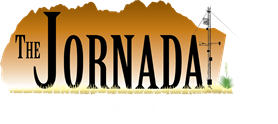| Abstract | We describe a soil-based framework for organizing, synthesizing, and applying our growing understanding of land degradation processes to assessment, monitoring, and management. The framework is dual-purpose: (1) coordinate the use of existing tools, resources, and knowledge, and (2) facilitate the integration and application of new knowledge as it is developed. The framework includes five elements: (1) an ecological site-based approach to grouping soils based on functional characteristics, (2) a repository for ecological site-specific data and knowledge, (3) conceptual models that organize information on management and restoration options, and protocols for (4) assessing and (5) monitoring key ecosystem attributes. The first two elements already exist for U.S. soils dominated by grassland, shrubland and savanna ecosystems. This paper focuses on the use of conceptual state-and-transition models (element 3) to identify indicators of key properties and processes associated with land degradation and recovery (elements 4 and 5), and to define and communicate appropriate land management and restoration strategies. Development and application of these models provides an opportunity for soil scientists and ecologists to integrate and communicate our knowledge of soil and land degradation processes throughout the world. We will present examples showing how these models are currently being applied to the development of assessment and monitoring programs, and to the prioritization of research. |


